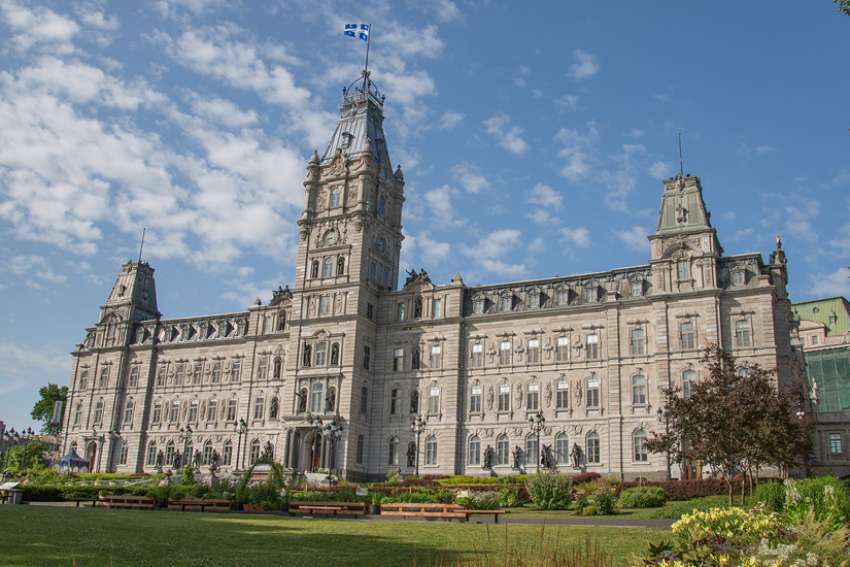But the National Council of Canadian Muslims (NCCM) and the Canadian Civil Liberties Association (CCLA), who were the first to challenge Bill 21 in the courts, announced May 6 they will be appealing the ruling for very different reasons.
“Justice Marc-Andre Blanchard recognized that there are fundamental problems with Bill 21. The stories of how real people continue to be harmed by Bill 21 are clear in this decision. There are real life consequences to the harms that Bill 21 causes,” a joint statement May 6 from the NCCM and CCLA said in announcing they are taking their appeal to the Quebec Court of Appeal, adding they are prepared to take the challenge all the way to the Supreme Court if necessary.
“The government wants to make us believe that the court’s decision divides Quebecers,” said CCLA equity program director Noa Mendelsohn Aviv. “In fact, the legislation known as Bill 21 is itself the source of division, discrimination and harm to Quebec society. Quebecers deserve choice and freedom from government oppression, and that is why we will continue to fight Bill 21.”
Bill 21, “An Act respecting the laicity of the State,” was passed by the Coalition Avenir Quebec government in 2019. It bans public sector workers like police, teachers and health workers from wearing religious symbols and mandates having one’s face uncovered when giving or receiving public services.
In his 242-page Quebec Superior Court ruling, Blanchard ruled that for the most part the Quebec government does have the power to force government employees not to wear any religious symbols while they are at work. That’s despite conceding Bill 21 infringes on the religious freedom and freedom of expression rights of Canadians. But Blanchard ruled that because Quebec’s government invoked the notwithstanding clause of the constitution, most of Bill 21 is shielded from being challenged in the courts.
However, Blanchard did strike down a part of the bill that relates to English language education rights in Quebec, ruling the law violates Section 23 of the Charter of Rights and Freedoms which says minority education rights can not be upended by the notwithstanding clause.
It is that aspect of the ruling that has angered the provincial government and prompted it to appeal the ruling.
English school boards — who were part of the challenge to Bill 21 — vow to defend the ruling on appeal.
Many human rights and religious groups have been calling on the federal government to get involved in the legal challenges to Bill 21, but so far the federal government’s position has been to stay out of the Quebec court cases.
Despite the lack of action or support from the federal political parties which have all framed the issue as being a provincial issue, opponents will continue to seek to overturn Bill 21 in the courts.
“It has been almost two years of second-class citizenship for Quebecers who wear religious symbols such as the hijab, kippah or turban,” said NCCM director of Quebec Affairs Yusuf Faqiri.
“We promised that we would not stop fighting until second-class citizenship ends for all Quebecers.”


